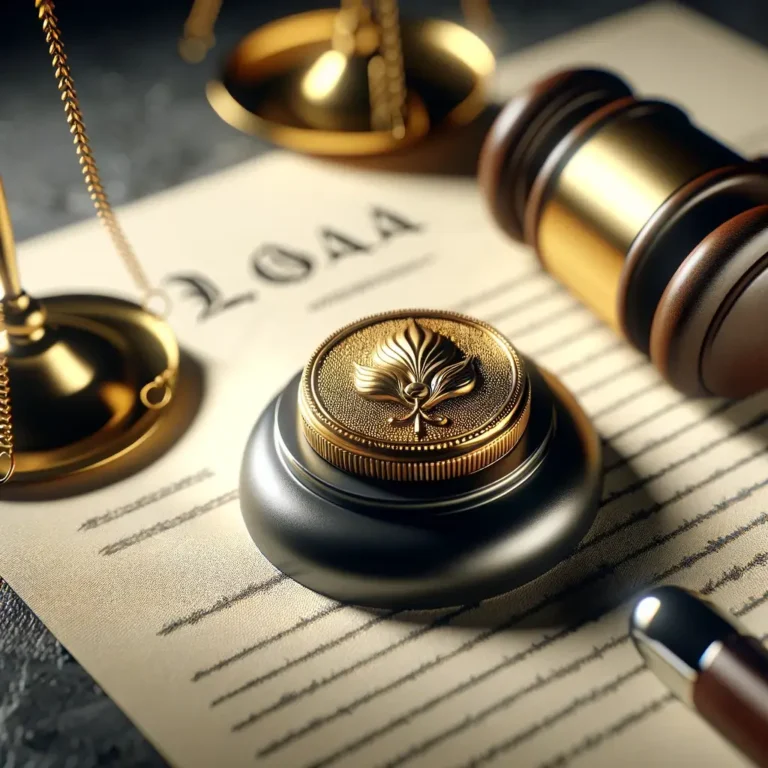In this article we have explained How to Draft a Special Power of Attorney. As drafting a Special Power of Attorney (SPA) is an essential process in Indian law, allowing an individual (the principal) to grant another person (the agent) the power to act on their behalf for specific tasks. This article guides you through the simple steps to create a SPA, ensuring it’s legally sound and effective.
Understanding Special Power of Attorney
A Special Power of Attorney is a legal document that provides a designated person the authority to act for the principal in specific matters or transactions. Unlike a General Power of Attorney, which covers a broad range of actions, a SPA is limited to specific duties.
Why You Might Need One
- Property Transactions: Buying, selling, or managing property.
- Legal Matters: Representing in court or dealing with legal documents.
- Financial Affairs: Handling bank transactions or signing cheques.
How to Draft a Special Power of Attorney in India
Step 1: Decide the Powers to Grant
Begin by clearly identifying the specific tasks or decisions you want the agent to handle. Be precise to avoid any confusion or misuse of the power granted.
Step 2: Choose Your Agent Wisely
Select someone you trust completely as your agent. This person will have significant power over your affairs, so it’s crucial they are reliable and have your best interests at heart.
Step 3: Drafting the Document
Information to Include
- Principal’s Details: Full name, age, and address.
- Agent’s Details: Full name, age, and address.
- Scope of Power: Clearly describe the powers being granted.
- Duration: Specify if the SPA has a time limit or circumstances under which it will end.
- Governing Law: Mention that the document is subject to Indian law.
Language and Format
Use simple, clear language to avoid ambiguity. The document should be formatted for clarity, with headings for each section.
Step 4: Signature and Witnesses
The SPA must be signed by the principal in the presence of two witnesses. The witnesses should also sign, attesting to the principal’s signature.
Step 5: Registration (If Required)
For certain acts, like those related to property, the SPA needs to be registered with the appropriate government office. Check if this applies to your SPA and complete the registration if necessary.
Legal Requirements and Considerations
- Competence: The principal must be mentally competent to grant the SPA.
- Voluntariness: The SPA must be granted without coercion.
- Revocation: The principal can revoke the SPA at any time, as long as they are competent.
Final Thoughts
A Special Power of Attorney is a powerful tool in managing your affairs through a trusted individual. By following these steps, you can ensure that your SPA is drafted correctly, reflecting your intentions and complying with Indian law. Remember, while the process can be straightforward, the choice of agent and the powers granted require careful consideration.
Frequently Asked Questions (FAQs) on Special Power of Attorney in India
1. What is a Special Power of Attorney (SPA)?
An SPA is a legal document allowing someone to act on your behalf in specific matters or transactions.
2. How does an SPA differ from a General Power of Attorney (GPA)?
An SPA is limited to specific tasks, while a GPA grants broad authority over many aspects of the principal’s life.
3. Who can grant a Special Power of Attorney?
Any mentally competent adult can grant an SPA.
4. Who can be appointed as an agent in an SPA?
Any trustworthy individual, preferably someone close and reliable, can be appointed as an agent.
5. Do I need a lawyer to draft an SPA?
While not mandatory, consulting a lawyer ensures the SPA meets all legal requirements.
6. What details should be included in an SPA?
Include the names, ages, and addresses of the principal and agent, the specific powers granted, the duration, and a statement that it is subject to Indian law.
7. Is witnessing an SPA mandatory?
Yes, the principal’s signature must be witnessed by two individuals.
8. Can an SPA be revoked?
Yes, the principal can revoke it anytime, provided they are mentally competent.
9. Does an SPA need to be registered?
It depends on the powers granted; property-related actions often require registration.
10. What happens if the principal becomes incapacitated?
An SPA becomes invalid if the principal becomes mentally incapacitated unless it’s a Durable Power of Attorney.
11. Can an SPA be used for banking transactions?
Yes, if it specifically grants authority for such transactions.
12. How long is an SPA valid?
It remains valid until its specified expiration date, if any, or until revoked by the principal.
13. Can an SPA be used in court?
Yes, an agent can represent the principal in court if the SPA explicitly grants that power.
14. Can I grant an SPA to multiple agents?
Yes, but you should specify whether they must act jointly or can act independently.
15. Can an SPA be used to sell property?
Yes, if it explicitly grants the agent authority to conduct property transactions.
16. What is the cost of drafting an SPA?
Costs vary based on lawyer fees and registration charges, if applicable.
17. How can I ensure my SPA is legally valid?
Ensure it includes all required information, is signed and witnessed properly, and registered if necessary.
18. Can a non-resident Indian (NRI) grant an SPA?
Yes, NRIs can grant SPAs for managing their affairs in India.
19. Can an SPA be granted for marital decisions?
No, personal decisions like marriage cannot be delegated through an SPA.
20. What is the role of witnesses in an SPA?
Witnesses attest to the authenticity of the principal’s signature.
21. Can an SPA grant authority to manage all financial affairs?
Only if it specifically lists all the financial powers being granted.
22. Is an SPA valid outside India?
Its validity outside India depends on the laws of the foreign country and whether it recognizes the Indian SPA.
23. Can an SPA be used to grant medical decision-making powers?
Yes, if it specifically includes medical decision-making authority.
24. How can I revoke an SPA?
By issuing a written revocation notice to the agent and, if registered, officially recording the revocation.
25. Can an SPA be changed once granted?
No, an SPA cannot be amended; a new one must be issued for any changes.
26. What if the agent misuses their power?
The principal can revoke the SPA and may pursue legal action against the agent for misuse.
27. Can a company grant an SPA?
Yes, companies can grant SPAs through authorized representatives.
28. How specific should the powers in an SPA be?
Powers should be detailed explicitly to avoid ambiguity and misuse.
29. Can an SPA authorize the agent to appoint a substitute?
Typically, no, unless the SPA explicitly includes a clause allowing delegation.
30. Is an SPA affected by the principal’s death?
Yes, an SPA automatically becomes invalid upon the principal’s death.
















